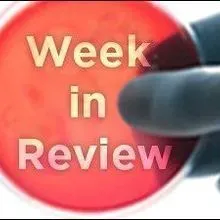 UC SAN DIEGO SCHOOL OF MEDICINEA team led by investigators at the Salk Institute for Biological Studies in La Jolla, California, this week (September 15) presented “sonogenetics,” a technique that uses sound to stimulate genetically engineered neurons in nematodes. The results were published in Nature Communications.
UC SAN DIEGO SCHOOL OF MEDICINEA team led by investigators at the Salk Institute for Biological Studies in La Jolla, California, this week (September 15) presented “sonogenetics,” a technique that uses sound to stimulate genetically engineered neurons in nematodes. The results were published in Nature Communications.
“It’s an awesome study because it really opens up new possibilities for how we modulate biology,” said Jamie Tyler, a neuroscientist at Arizona State University who was not involved in the work.
“It’s the first demonstration of this genetic enhancement of ultrasound neurostimulation,” said Stephen Baccus, a neurobiologist at the Stanford University School of Medicine who was also not involved in the study.
 MARGARET BAUER, INDIANA UNIVERSITYA complement of commensal skin microbes, including some species associated with acne, appears to help human hosts clear canchroid-causing Haemophilus ducreyi, scientists from Indiana University and their colleagues showed in mBio this week (September 15).
MARGARET BAUER, INDIANA UNIVERSITYA complement of commensal skin microbes, including some species associated with acne, appears to help human hosts clear canchroid-causing Haemophilus ducreyi, scientists from Indiana University and their colleagues showed in mBio this week (September 15).
When infected with H. ducreyi, some people go on to develop pustules while others do not. The researchers inoculated a small sample of volunteers with the pathogen, sampling their skin microbes beforehand and throughout the course of ...





















